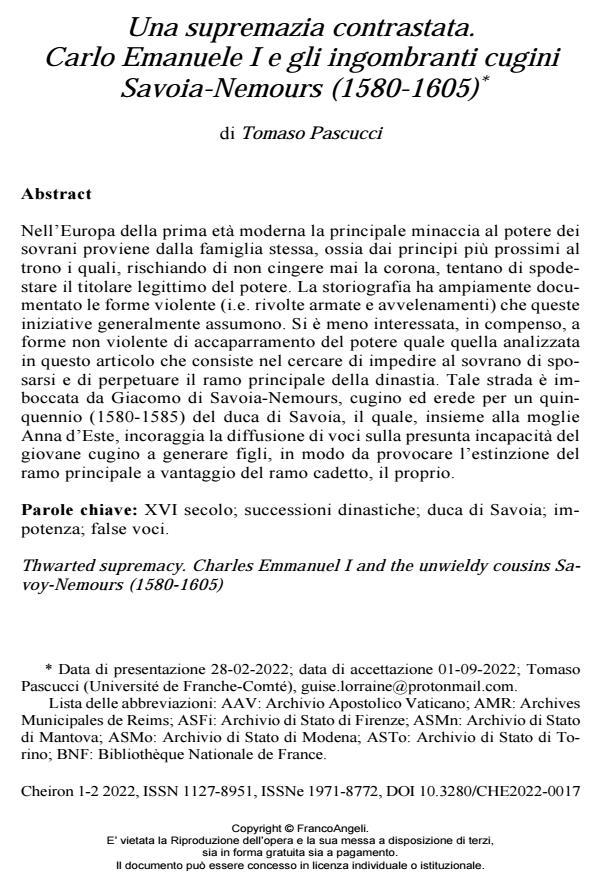Thwarted supremacy. Charles Emmanuel I and the unwieldy cousins Savoy-Nemours (1580-1605)
Journal title CHEIRON
Author/s Tomaso Pascucci
Publishing Year 2023 Issue 2022/1-2
Language Italian Pages 11 P. 313-323 File size 162 KB
DOI 10.3280/CHE2022-001017
DOI is like a bar code for intellectual property: to have more infomation
click here
Below, you can see the article first page
If you want to buy this article in PDF format, you can do it, following the instructions to buy download credits

FrancoAngeli is member of Publishers International Linking Association, Inc (PILA), a not-for-profit association which run the CrossRef service enabling links to and from online scholarly content.
In Early Modern Europe the main threat to the power of sovereigns comes from the family itself, namely from the princes closest to the throne who, risking never wearing the crown, try to overthrow the legit-imate holder of power. Historiography has largely documented the vio-lent forms (i.e. armed revolts and poisonings) that these initiatives gen-erally take. On the other hand, it has less focused on non-violent forms of power grabs, such as the one analyzed in this article, which consist in trying to prevent the sovereign from marrying and perpetuating the dynasty’s main branch. This road is taken by Giacomo di Savoia-Nemours, cousin and heir for five years (1580-1585) of the Duke of Savoy, who, together with his wife Anna d’Este, encouraged the spreading of rumors about the presumed incapacity of his young cousin to beget children, so as to bring about the extinction of the main branch in favor of the collateral branch, it’s own branch.
Keywords: 16th Century; Dynastic Successions; Duke of Savoy; Impo-tency; False Rumors.
Tomaso Pascucci, Una supremazia contrastata. Carlo Emanuele I e gli ingombranti cugini Savoia-Nemours (1580-1605) in "CHEIRON" 1-2/2022, pp 313-323, DOI: 10.3280/CHE2022-001017